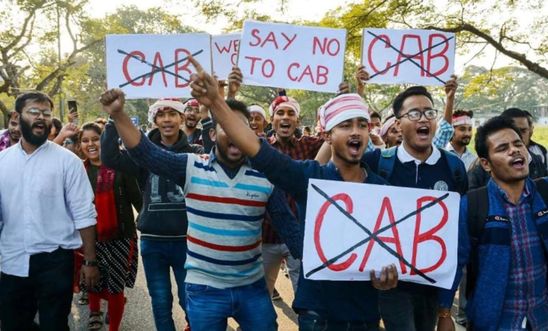
Press releases
India: 'Brutal' police crackdown on student protesters must be investigated

Indian police involved in the crackdown on student protesters must be investigated, Amnesty International India said today, as protests against the controversial Citizenship Amendment Bill in the country continue.
Avinash Kumar, Executive Director of Amnesty India, said:
“Students have the right to protest. Violence against peacefully protesting students cannot under any circumstance be justified.
“Allegations that the police brutally beat up and sexually harassed students in Jamia Millia Islamia University must be investigated, and those suspected of being responsible must be prosecuted.
“Student protesters in the Aligarh Muslim University were also allegedly beaten up, with the media reporting that more than 100 students were injured, and that police blocked ambulances from going inside the university to help the wounded students.
“Police should only use lethal force in response to an imminent threat of death or serious injury, and only as a last resort."
Amnesty India is urging the central Indian and state governments to respect the rights of peaceful protestors, and review their approach to policing protests in order to de-escalate tensions and prevent more lives being put at risk.
Citizenship Amendment Bill
The Citizenship Amendment Bill legitimises discrimination on the basis of religion and stands in clear violation of both the constitution of India and international human rights law, Amnesty International India had previously said.
The bill amends the Citizenship Act of 1955 to enable irregular migrants to acquire Indian citizenship through naturalisation and registration.
However, it restricts eligibility to only Hindus, Sikhs, Buddhists, Jains, Parsis and Christians from Afghanistan, Bangladesh and Pakistan who entered India on or before 31 December 2014. The bill also reduces the requirement of residence in India for citizenship by naturalisation from 11 years to five years for these particular communities.